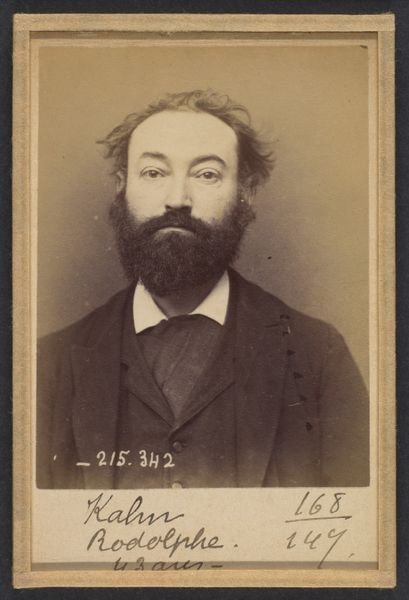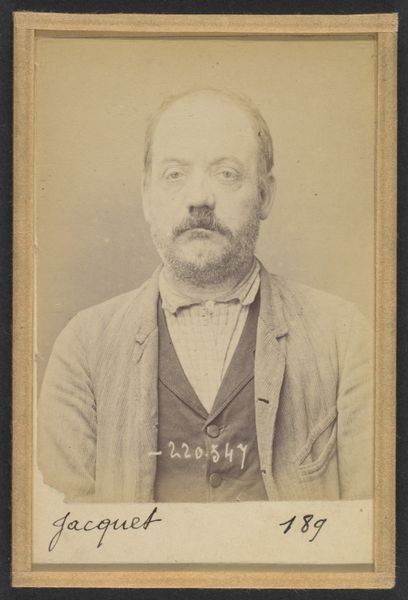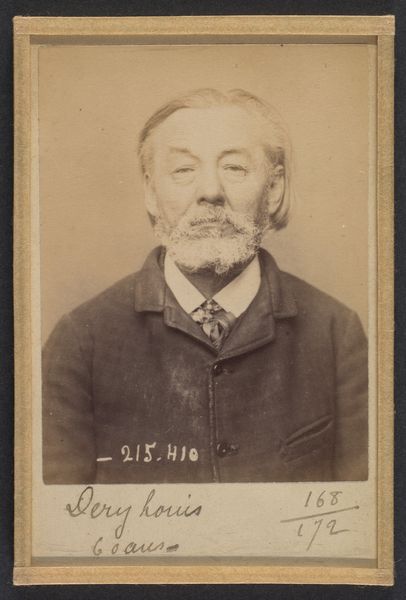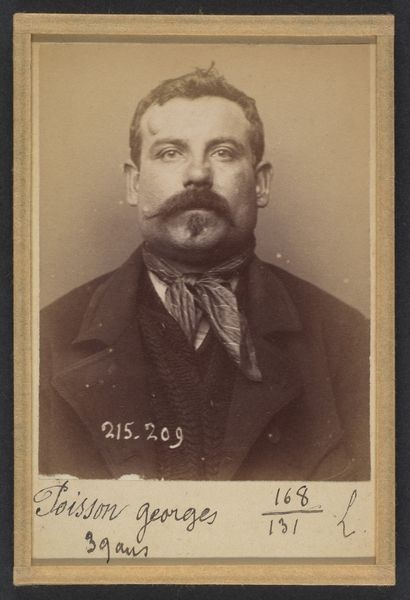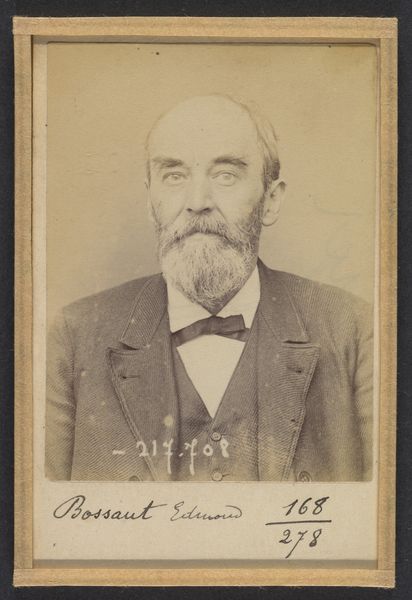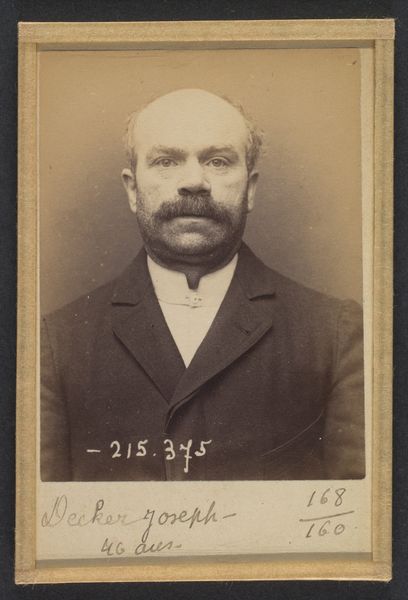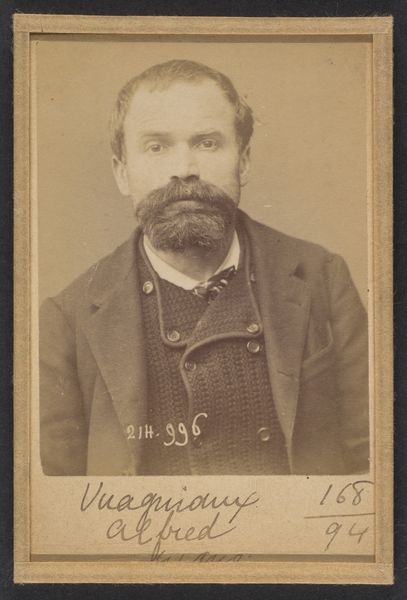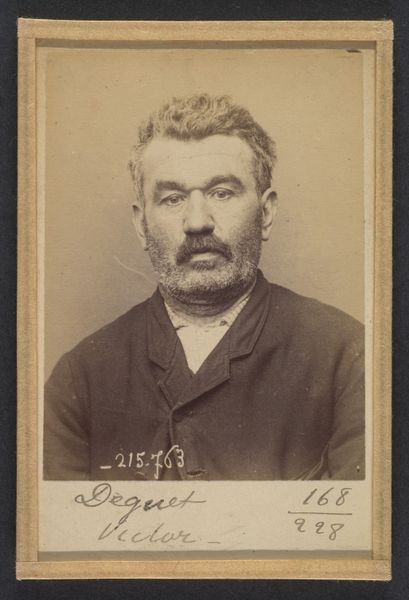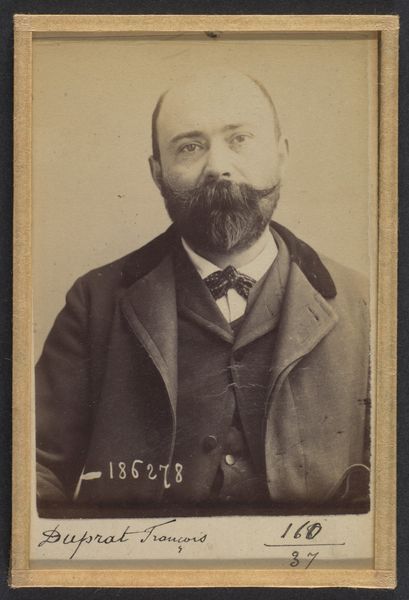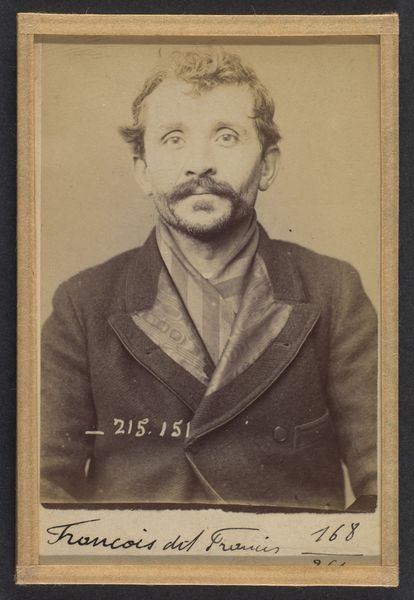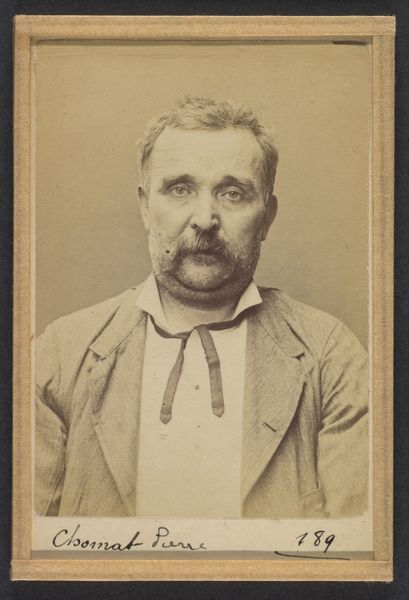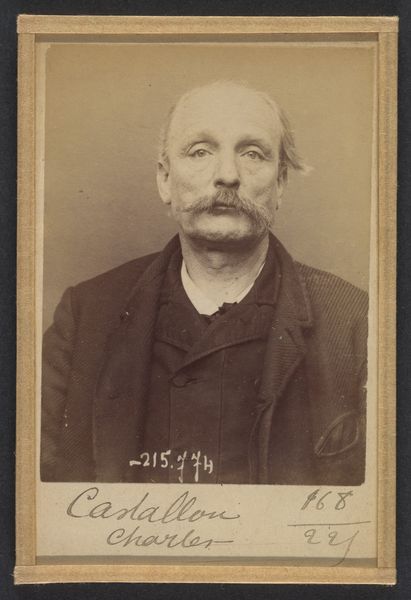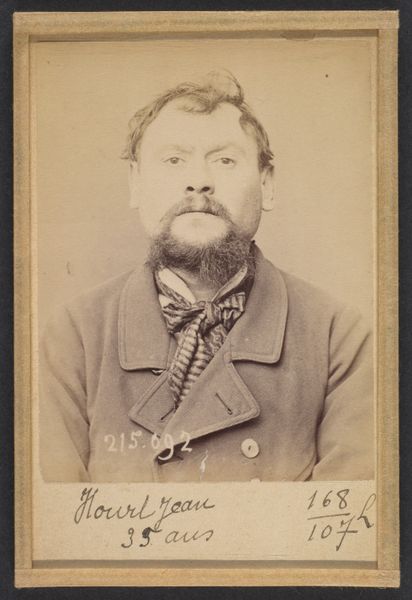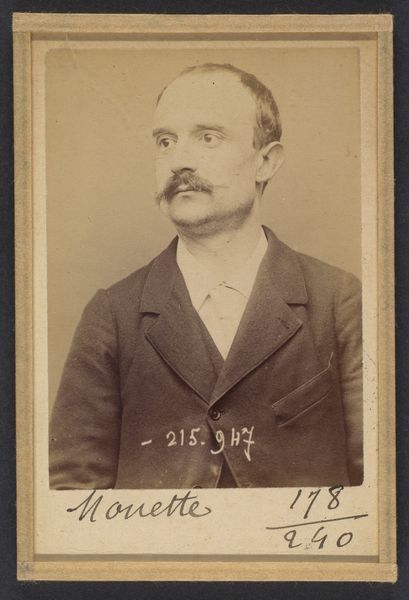
Dodot. Émile (ou Jules). 55 ans, né à Paris Ier. Cordonnier. Anarchiste. 27/2/94. 1894
0:00
0:00
print, photography, gelatin-silver-print
#
portrait
# print
#
social-realism
#
street-photography
#
photography
#
gelatin-silver-print
#
19th century
#
men
#
academic-art
#
portrait art
#
fine art portrait
Dimensions: 10.5 x 7 x 0.5 cm (4 1/8 x 2 3/4 x 3/16 in.) each
Copyright: Public Domain
Curator: Alphonse Bertillon created this compelling portrait in 1894, titled "Dodot. Émile (ou Jules). 55 ans, né à Paris Ier. Cordonnier. Anarchiste. 27/2/94.". It is currently held at the Metropolitan Museum of Art and rendered as a gelatin silver print. Editor: The sepia tones immediately strike me. There’s an intriguing contrast between the soft, almost dreamlike quality of the faded image and the sharp gaze of the man, Dodot. His face holds such depth. Curator: Bertillon’s meticulous method here goes beyond the aesthetic. His process, which was to record and classify criminals through photography and anthropometry, speaks volumes. The materials themselves-- the gelatin silver print, a new technology-- served a very specific purpose, constructing a social record. Editor: Absolutely. Yet, the formal composition transcends pure documentation. The soft light sculpts his features. Notice how his ascot creates an interesting texture, playing with the smooth surface of his jacket. The depth of field is so narrow, focusing our attention entirely on his gaze. It brings a haunting quality. Curator: He was a pioneer in forensic science; one could argue Bertillon approached even portraiture with a distinct sense of cataloging. The social context is key: Anarchism in 1890s Paris wasn’t just a belief, but often a direct confrontation with established order. His trade, as a shoemaker, positions him squarely within the working class, those bearing the brunt of inequality and labor exploitation. The creation and distribution of these portraits was deeply tied to prevailing notions of crime and social deviance. Editor: While understanding the social motivations behind the photograph certainly is enriching, consider his stare. His weary eyes, and that remarkable mustache…it lends him an unexpectedly approachable aura despite the intended criminal profile aspect. Curator: His direct gaze might indicate defiance. We could perceive it as Bertillon's project co-opting individual narratives under systemic control. I wonder how much agency Dodot had during this portrait process. Editor: Indeed. The intersection of documentation and artistry renders this a work of considerable, enduring fascination.
Comments
No comments
Be the first to comment and join the conversation on the ultimate creative platform.
